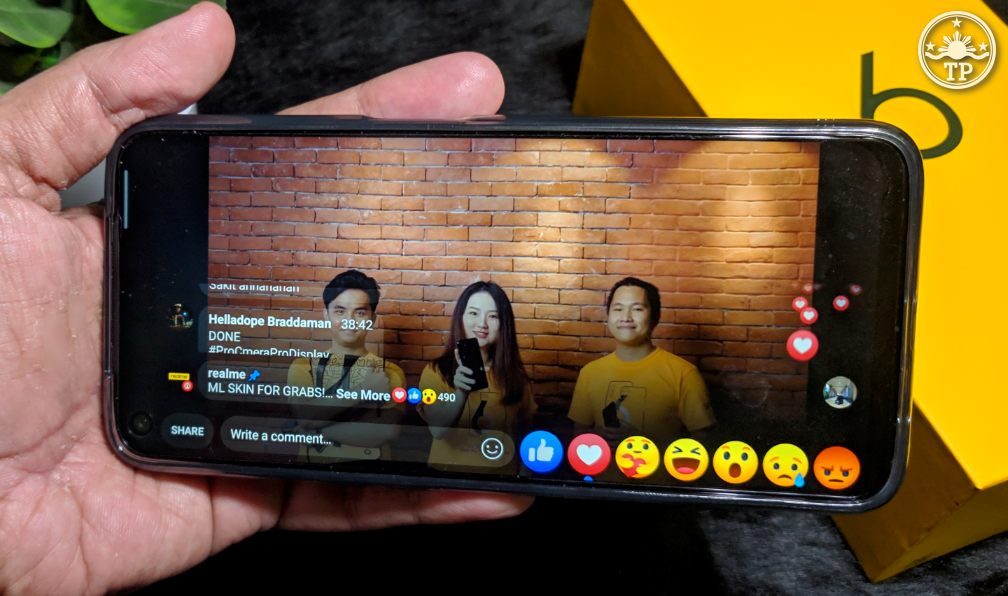VPN - What is it and why do you need one - Android
If you have any techie friends, chances are that they have recommended using a virtual private network (VPN) to you when you’re surfing the vast landscape of the internet. They’ve probably explained the basics of how it works and some of its benefits, like hiding your IP address or being able to bypass geo-restrictions for […] More
This article, VPN: What is it and why do you need one?, was originally published at NoypiGeeks | Philippines Technology News, Reviews and How to's.
If you have any techie friends, chances are that they have recommended using a virtual private network (VPN) to you when you’re surfing the vast landscape of the internet. They’ve probably explained the basics of how it works and some of its benefits, like hiding your IP address or being able to bypass geo-restrictions for Netflix and other streaming services. But no matter how great it sounds, you probably still have no idea what a VPN actually is.
If you have no clear grasp yet of what a VPN is and what it does for your security, join the billions of internet users much like you who are not using a VPN to browse the web. But because of the increasing number of cybercrimes occurring through the internet, following precautionary measures like using a VPN to protect yourself is more important than ever.
Today, we’re giving you a crash course on what VPNs are so that you get to know more about this often-misunderstood topic. We explain the basics of what a VPN does (and doesn’t do) in protecting you on the internet, which VPN providers you should consider, and some VPN dos and don’ts to follow for ensuring your safety.

What is a VPN?
You can think of a VPN as a tunnel through the internet, a point-to-point connection between your computer and a private network. If you establish a VPN connection with your network through a VPN server, all of your network traffic will now go through this connection. It allows you to virtually connect to that network, even if you’re actually miles away. This is why it’s called a Virtual Private Network or VPN.
This may not yet sound like the VPN your techie friend has been telling you that can give you internet security. But in the technical sense, this is what a VPN is at its core: a direct and secure connection to a private network through the internet. If you’re ever worked from home, you’ve probably used a VPN to connect to your office’s private network as if you were in the office yourself.
The more familiar VPN is the one that many VPN companies offer. These companies offer their customers access to their VPN servers all around the world. Once connected, you can now browse the internet through that server’s connection as if you were using your device from that side of the world.
What can a VPN do for you?
Now that we’ve learned how a VPN works, the question becomes what exactly can you get from such a service. Using a VPN when browsing hosts many benefits, from internet security to access to geo-restricted content.
1. Secure your internet traffic from network snoopers.
If ever you connect to a public Wi-Fi network like in an airport or at your favorite coffee shop, there is a chance that a hacker may start snooping around your browsing habits to find information about you that they can exploit, like login details or credit card info. Through a VPN, all of your traffic passes through one tunnel, and nobody can see through that tunnel.
It must be noted that even without a VPN, most internet services and websites already employ many measures to protect your data, like end-to-end encryption and HTTPS. Using a VPN is another layer of security to further protect your internet traffic.

2. Hide your public IP address.
Your IP address is sort of your signature as you surf through the internet. Every website you visit and online activity you do keeps a log of your IP address. In other words, your browsing history can be traced back to you through your IP address by anyone who might want to spy on you.
When you use a VPN, the server assigns you a temporary IP address whenever you browse and hides your actual address. That way, if somebody decides to track your IP, they will only see the masked address and cannot trace your browsing history back to your actual IP address. In short, using a trusted VPN is one way you can browse the web anonymously.
3. Gain access to geo-restricted content.
If your VPN client connects you to a server located in another country, it will appear that you’re using the internet from that side of the world. This can be very useful in bypassing geo-restrictions in video streaming services like Netflix and Hulu.
For example, if you’re connected to a United States based server, Netflix will think that they’re sending data to someone in the US, and you get access to the U.S. catalog of content. They are sending data to an American server and IP address, but these get sent to your device through the VPN tunnel.
What should you consider when choosing a VPN?
Not all VPNs are created equal. When looking for your perfect VPN client, there are some things that you need to consider, depending on what your primary reason for using a VPN is. VPN companies offer different benefits from their service, so you may want to do a bit of research to get the most out of your VPN.
If you’re using a VPN to access geo-restricted content, you need to look at how many servers they have in how many countries. The more countries they have servers in only means more geo-restricted catalogs you can potentially tap into. You also don’t want to experience any significant buffering when streaming, so the location and latency to the servers are also important. Make sure to ask the provider beforehand to confirm if their VPN can unlock geo-restricted content.
If your main concern is security and anonymity, you need to look at the VPN’s encryption protocols to protect your data. You also want to steer clear of some VPNs that keep a log of your internet traffic while claiming that they have no access to it.
In addition, there are some VPN providers that will hand over your data to the authorities if they are requested to comply. On the flip side, VPN companies who don’t really have access to your data can’t hand over anything because they don’t have it.
Related articles
- Cloudflare WARP VPN: What it is, what it does, and is it worth the hype?
- Many VPN apps for Android leak users data, promote malvertising, and unencrypted
Which VPN should you get?
With all of those things considered, here we compile some of our recommended VPNs that have high functionality and are worth their price. There are several great and trustworthy VPN companies out there, but these are just some of the standouts based on some of our criteria.
ExpressVPN
ExpressVPN has by far the most number of functional servers in the most number of countries, with over 3,000 servers in 94 countries. They also have download speeds that reach up to 100 Mbps. These two criteria make ExpressVPN perfect for streaming and accessing geo-restricted content with significant speed.
This kind of premium service does come with a price, and it is high. A one-year subscription adds up to around $100, but the unlimited bandwidth and the top-notch service make every dollar of this VPN service worth it.

NordVPN
In terms of security, NordVPN is the way to go. As the first VPN server already encrypts your data, NordVPN sends the traffic to a second server for another layer of encryption. This makes sure that if ever it is intercepted, your information cannot easily be stolen.
You might think that this VPN experiences a noticeable slowdown because of the double encryption, but its average download speed is 70Mbps which is still very fast. As you log on to their service, NordVPN gives you either a random or a dedicated IP address. This is important if you’re using streaming services like Hulu which require a static IP address.
TunnelBear
If you’re a newbie that wants to try out a VPN without committing to a premium paid service yet, TunnelBear is a great free option for testing the waters. Its free version has a cap of 500MB per month, which is not a lot, and it only has servers in 20 countries. However, as far as free VPNs go, TunnelBear is secure and trustworthy and does the basics of internet security pretty well.
Are VPNs really secure?
As we’ve learned already, VPNs at their very core are meant to protect you from potential snoopers and trackers. Ideally speaking, all VPNs can provide you the level of security you need. But VPN clients vary in their policies, so you need to understand what you’re getting yourself into with your selected VPN.
Except for a few trustworthy ones, free VPNs are free for a reason, and that is because they keep a log of your internet traffic at the other end of the tunnel. They possibly sell your browsing habits to advertisers or law enforcement, or even use your data to steal your identity. There are a lot of these malicious VPN companies that claim to protect your data but instead use them for their own benefit.
Even with paid VPN services, you still need to do some research to know more about their privacy policies. Some paid VPNs do store some activity logs and personal information, even if just for a limited time. The bottom line is that you should only convene with trustworthy VPNs and always know what you’re signing up for.
Final thoughts
When done correctly, VPNs are a great way to protect yourself when browsing the internet from malicious intentions, as well as other benefits like bypassing geo-restrictions. But working with a sketchy VPN is just as dangerous (if not more) than not using a VPN in the first place. Make sure that your VPN is trustworthy so you can reap all the good things it can offer.
Did we miss anything? If you have recommendations, feel free to share your experience in the comments section.
This article, VPN: What is it and why do you need one?, was originally published at NoypiGeeks | Philippines Technology News, Reviews and How to's.
28/05/2020 06:08 PM
#LiveItUp in the Next ShOPPO Livestream with Gabbi Garcia and Magic Liwanag
28/05/2020 03:20 PM
Google/FB cable connection to PH to start this August
28/05/2020 02:38 AM
Grab Philippines introduces GrabProtect
28/05/2020 10:22 AM
Sony Interactive Entertainment announces Days of Play sale
28/05/2020 10:50 AM
‘Anonymous’ hacks PLDT customer service Twitter account [UPDATED]
28/05/2020 05:16 AM
A hacked or data-breached company is no laughing matter
28/05/2020 12:00 PM
Realme 6 and 6 Pro sold out in just 10 minutes!
28/05/2020 03:32 PM
- HEALTH
- Comics
- Libraries & Demo
- Sports Games
- Racing
- Photography
- Transportation
- Media & Video
- Sports
- Health & Fitness
- Weather
- Medical
- Cards & Casino
- Arcade & Action
- Personalization
- Social
- Communication
- Productivity
- Casual
- Shopping
- Tools
- Brain & Puzzle
- Business
- News & Magazines
- Finance
- Lifestyle
- Music & Audio
- Entertainment
- Travel & Local
- Books & Reference
- Education




![‘Anonymous’ hacks PLDT customer service Twitter account [UPDATED]](https://www.noypigeeks.com/wp-content/uploads/2020/05/Anonymous-Globe-threat.jpg)


